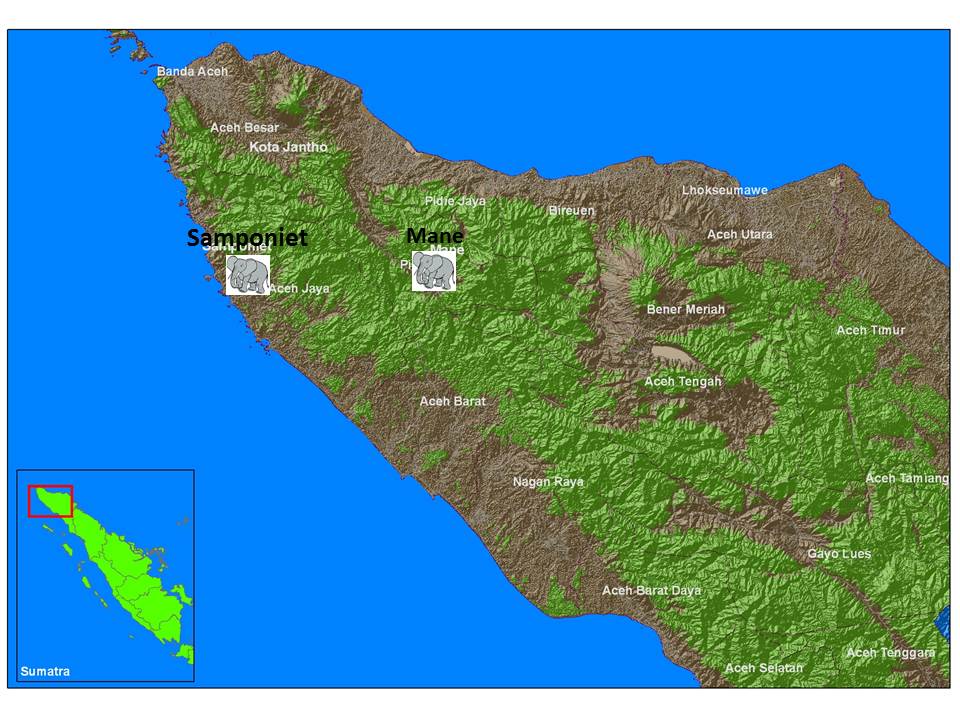The Context
The charismatic species, the Sumatran elephant, is now classified as critically endangered of extinction under IUCN (International Union for Conservation of Nature) classification. Despite the protection status and biological importance of the island of Sumatra, only 10% of the island is categorized as a protected area. In addition, more than 10,000 hectares (24,710.5 acres) of forest used by wild elephants is destroyed each year. This has lead to a rapid decline of the wild elephant population and a sparse distribution in the landscape.
The Aceh province on the island of Sumatra has a widely distributed, large population of wild elephants which requires a unique environment for the conservation of the species. The rapid conversion from natural habitat to human use has led to an increase of interactions between humans and elephants which cause conflicts. These conflicts can include the destruction of crops by elephants or sometimes fatal consequences to either human or elephant. Increasing contact with local populations has reduced their tolerance and willingness to protect the elephant’s natural habitat. This can sometimes lead to retaliation through poaching or poisoning. Today, the human-elephant conflict represents a very serious threat to the species’ survival.

The project
Flora and Fauna International’s (FFI) non-governmental organization (NGO) has been working for several years in the Aceh province on the island of Sumatra to protect the rainforest and the biodiversity within. Part of this work focuses on the human-elephant conflict and has implemented the “Conservation Response Unit” (CRU) where conflicts occur the most often. Some of these units use formerly mistreated domesticated elephants, and their mahout (trainers) for direct interventions within the local populations. The CRUs have four main objectives:
- Mitigate the human-elephant conflict,
- Reduce illegal activities in key elephant habitats through patrols and monitoring in the field,
- Educate local people about the importance of protecting elephants and their habitat,
- Establish ecotourism, managed by local people, to ensure long-term financial sustainability to the CRUs.
This project aims to conserve wild elephants and their habitats by providing long-term solutions. FFI aims to reduce the number of conflicts and create jobs for the local population. Therefore, the result would be positive for both humans and elephants.
FFI is currently responsible for two CRUs in Aceh, located in Sampoiniet and Mane. At these locations the ecotourism programs have yet to be developed. It is in this context that I intervene. The main task I have while working with FFI will be to implement a strategic plan for the development of ecotourism programs offered at the camps. Over the next six months, I will be in charge of analyzing the current plans for ecotourism programs and improving them by working alongside rangers, local guides, mahout, and local tourism agencies in order to promote and maintain international tourist participation and positive expectations.

